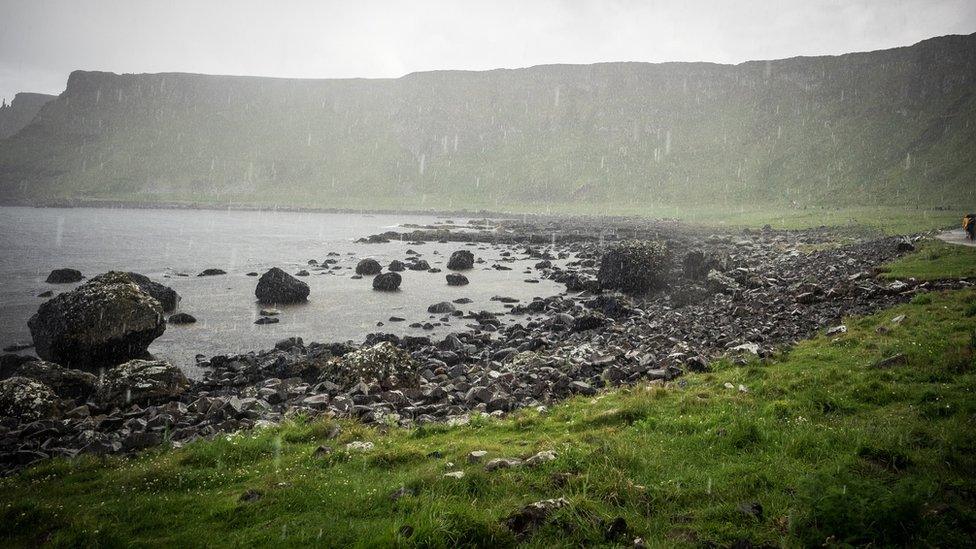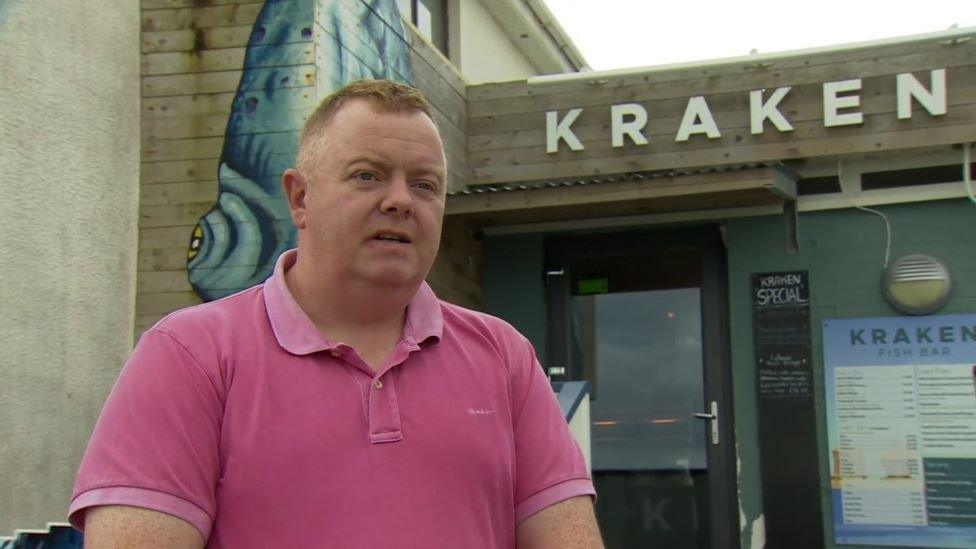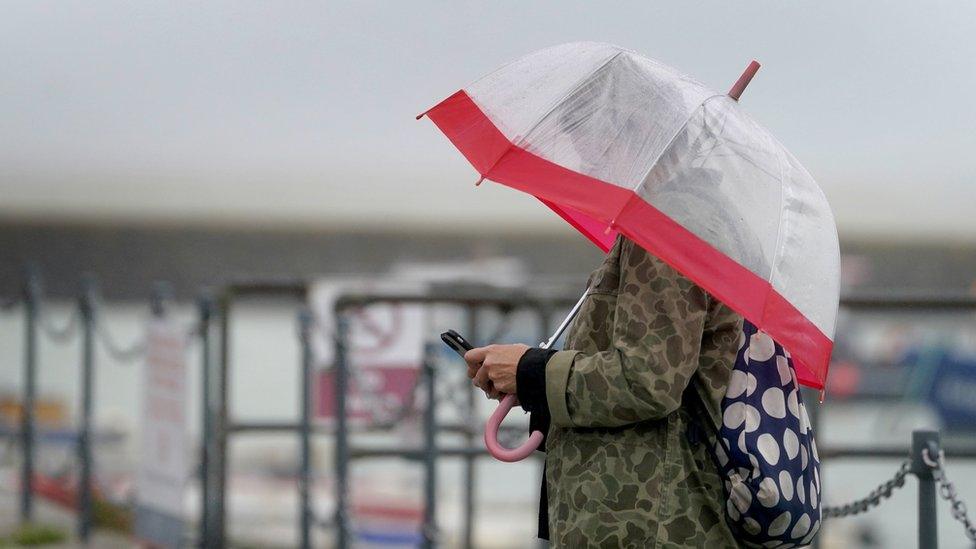Northern Ireland weather: Storm Antoni brings heavy rain and strong winds
- Published

The weather warning is in place until 11:00 on Saturday
Storm Antoni has brought some unseasonably wet and windy weather to parts of Northern Ireland on Saturday.
A Met Office yellow weather warning for rain was in place overnight and ended at 11:00 BST.
Up to 30mm of rain had been expected to fall widely, with areas to the south and east expected to get even more.
In the Republic of Ireland, some homes and cars were damaged by flash flooding in Clontarf in Dublin.
The Met Office said Belfast and parts of County Down were expected to get up to 60mm of rain.
Allow X content?
This article contains content provided by X. We ask for your permission before anything is loaded, as they may be using cookies and other technologies. You may want to read X’s cookie policy, external and privacy policy, external before accepting. To view this content choose ‘accept and continue’.
It added up to 70mm of rain could fall over the Mourne Mountains.
As well as the rain there were some unseasonably strong winds with gusts up to 55km/h (35mph).
There was a risk in some areas, especially along the east coast, with gusts of up to 80km/h (50mph).

The latest warning comes after Northern Ireland had its wettest July on record
The heaviest and most persistent rain was through the early hours of Saturday morning but gradually improved later in the morning.
It is expected to stay unsettled through the day with sunny spells and some heavy, and blustery showers.

What should I expect?
The Met Office has issued guidance on what people can expect during Storm Antoni, including:
Flooding causing damage to homes and businesses
A possible danger to life due to fast-flowing or deep floodwater
Delays or cancellation to buses and trains services
Spray or deep floodwater causing difficult driving conditions
Roads may be closed as roads may be flooded
Source: Met Office

Met Éireann also issued a status yellow weather warning for parts of the Republic of Ireland as the Irish bank holiday weekend begins.
It ended at 13:00 local time on Saturday for counties in the south and west.
Heavy rain fell in parts of Connacht and counties Tipperary, Clare, Leinster, Monaghan and Cavan.
In Clontarf, eight people had to be taken from their homes by the fire service with inflatable rescue sleds after 17 houses in one development flooded.
Allow X content?
This article contains content provided by X. We ask for your permission before anything is loaded, as they may be using cookies and other technologies. You may want to read X’s cookie policy, external and privacy policy, external before accepting. To view this content choose ‘accept and continue’.
Northern Ireland had its wettest July on record, with figures going back to 1836, according to the Met Office.
Provisional figures showed more than double the normal amount of rain fell during the month, with 185.4mm recorded.
The previous record was 185.2mm, set back in July 1936.
The bad weather has already contributed to a drop in footfall according to business owners on the north coast.

Sean McLaughlin said the wet weather and rising cost of living hit trade on the north coast in July
Sean McLaughlin owns a fish and chip restaurant and said the weather had added to a "perfect storm".
"We've just come off the back of a really tough winter with price increases, energy costs, all those things," he said.
"We were expecting a bumper summer with decent weather and more people coming around, but sadly we've hit the wettest July we've ever seen."
Tanya Gillen, who owns a café in the seaside hotspot, said she also experienced a particularly poor season.
"Where we're located, people are not coming off the main drag to the Arcadia if the weather's not good," she said.
"Maybe it is a combination of the weather and the cost-of-living crisis everyone is talking about."

Tanya Gillen said businesses in the north coast normally relied on a busy July
She said seasonable businesses on the north coast normally rely on a busy July but this year has been different.
"July is normally the month we see our tills go up, but our tills are down by 50%," Ms Gillen continued.
"Our problem is we guarantee our workers so many hours a week so regardless of whether we're busy or not, we're still paying for staff."
- Published2 August 2023

- Published31 July 2023

- Published1 August 2023
